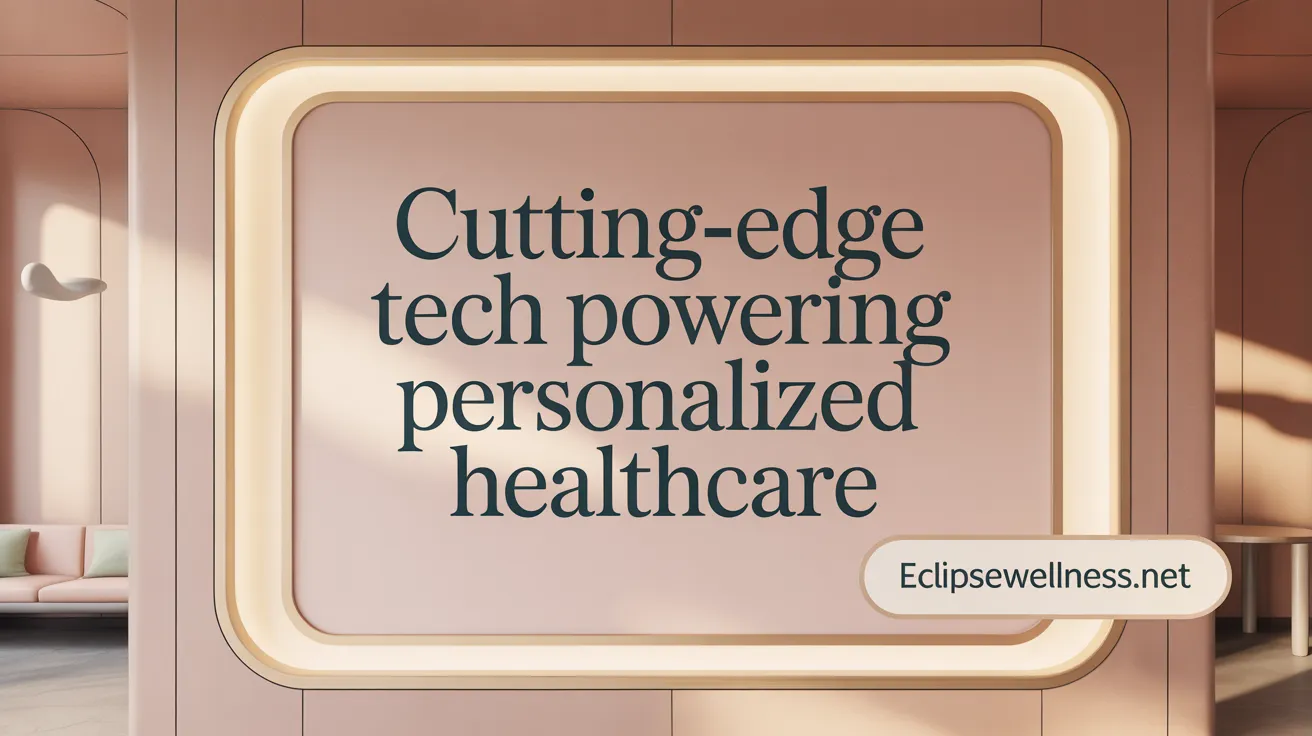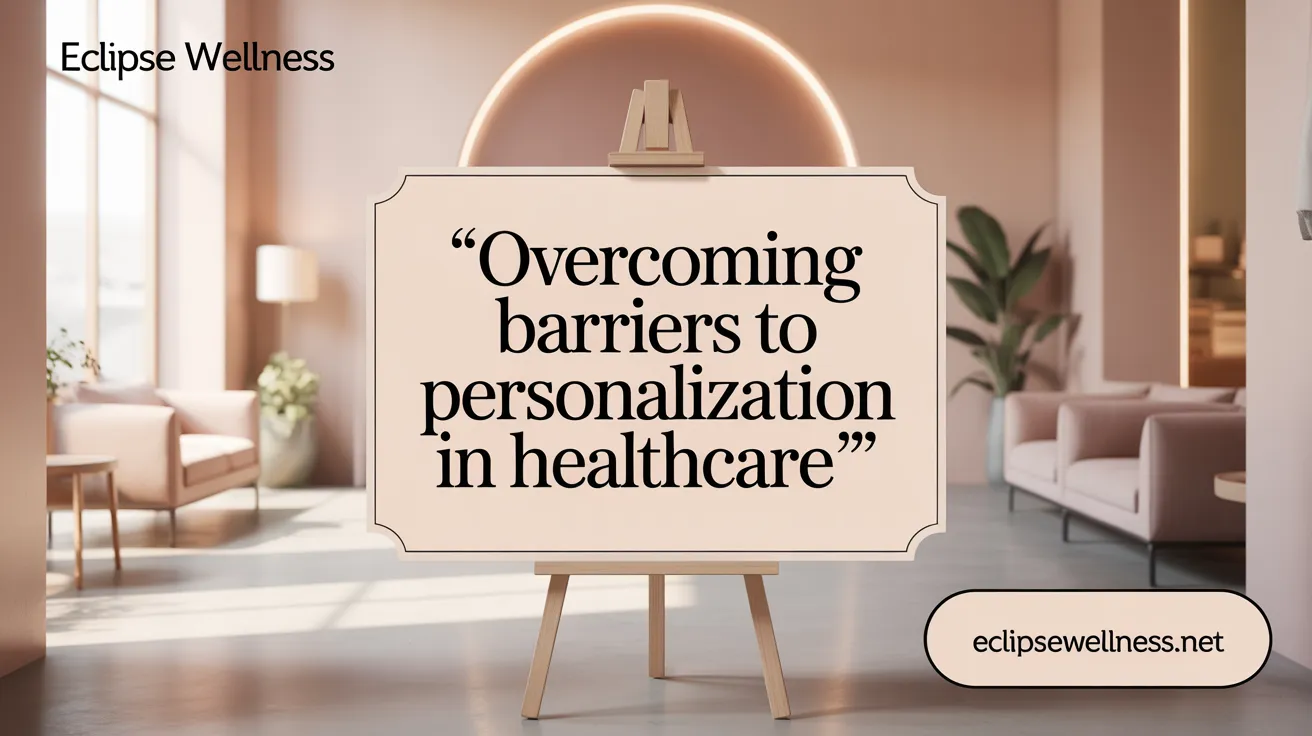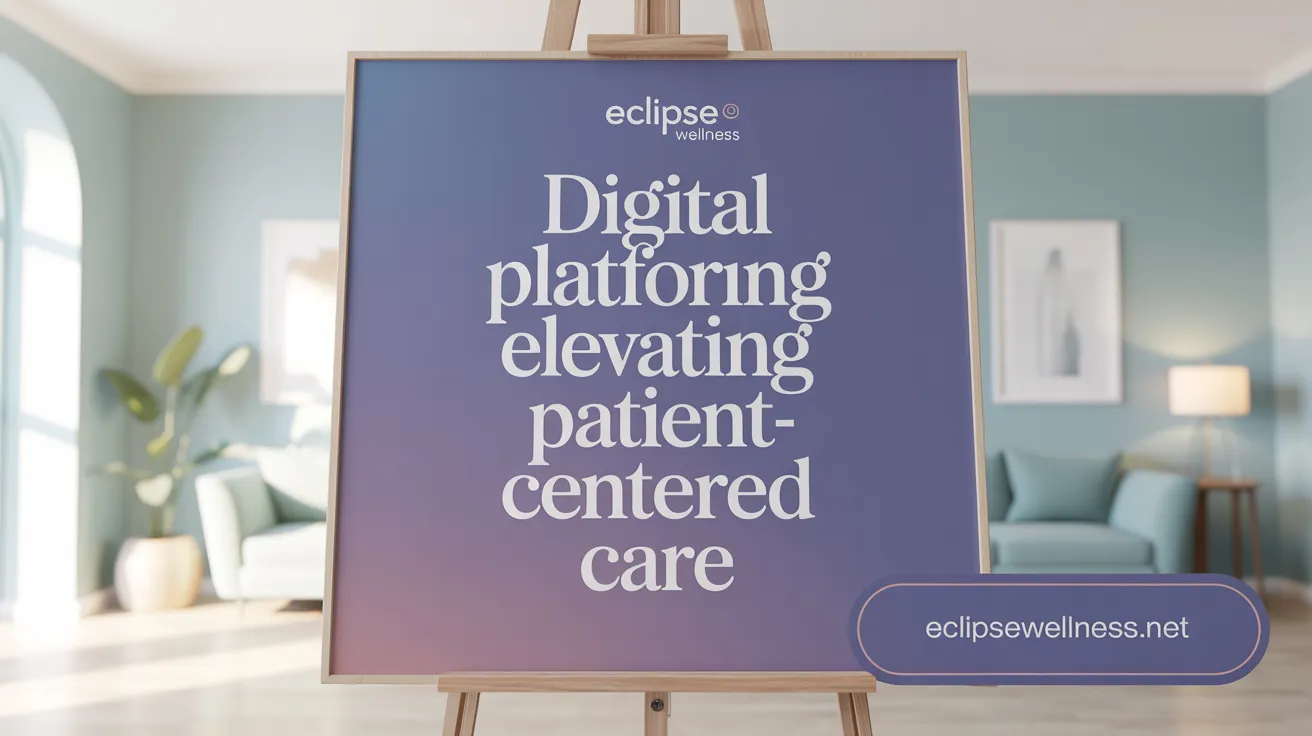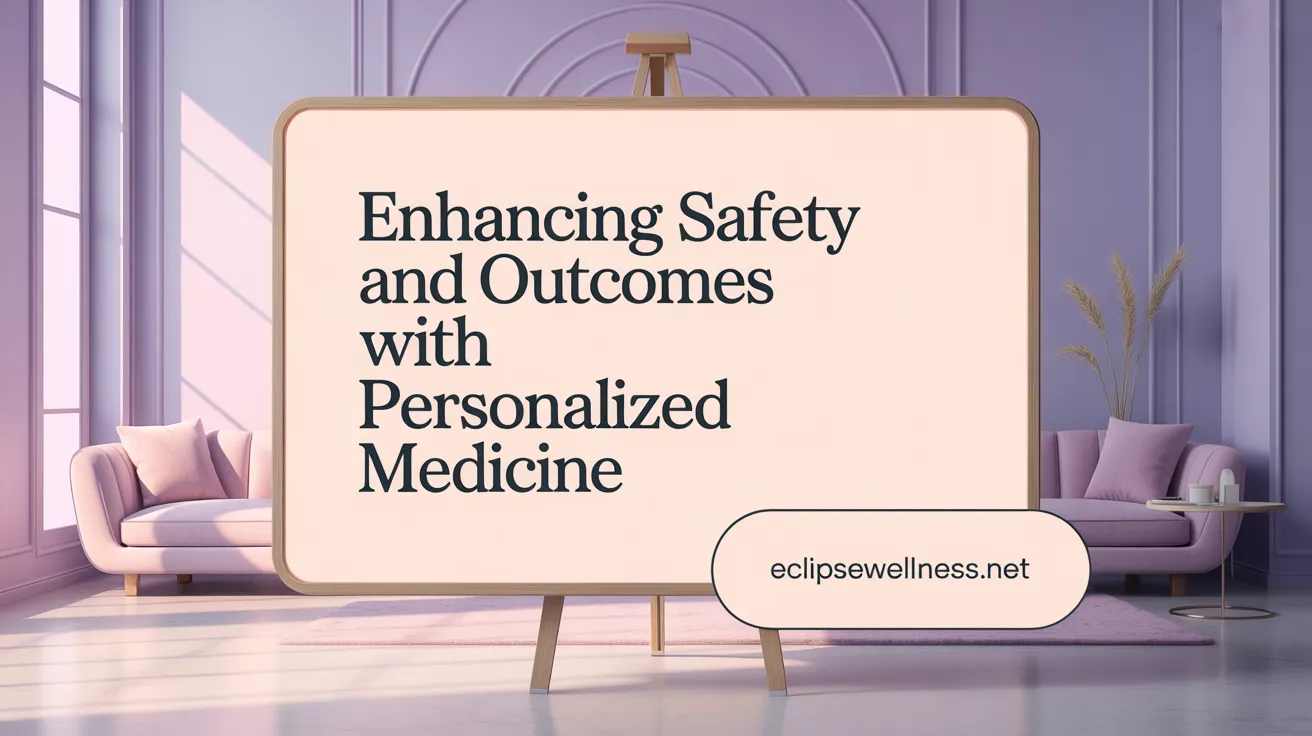Introduction to a New Era in Patient Empowerment
Personalized healthcare is revolutionizing the medical landscape by shifting the paradigm from a one-size-fits-all model to one that tailors care uniquely to every individual. This transformation harnesses cutting-edge technologies like artificial intelligence, genomics, and digital health tools to craft highly individualized prevention, diagnosis, and treatment strategies. This article explores how these advancements empower patients like never before, enhancing engagement, improving outcomes, and reshaping the patient-provider relationship toward collaboration and shared decision-making.
The Foundations of Personalized Healthcare: Precision Medicine and Genomics

What is personalized healthcare and how does it differ from traditional care?
Personalized healthcare is an innovative approach that customizes prevention, diagnosis, and treatment based on the unique genetic makeup, lifestyle, and environmental factors of each individual. Unlike traditional medicine's "one-size-fits-all" model, personalized healthcare leverages advanced genetic profiling and predictive technologies to tailor strategies specifically for each patient.
This model focuses on early detection and proactive interventions, enabling clinicians to move from reactive care to wellness-focused and preventive care. It involves comprehensive health risk assessments incorporating family history, biometric data, and lifestyle habits.
Role of genetic profiling in treatment and prevention
Genetic profiling is central to personalized healthcare, allowing individualized risk prediction and therapy planning. By analyzing a patient's genetic information, healthcare providers can identify susceptibilities to various diseases and determine the most effective treatments.
For example, pharmacogenomics guides drug selection and dosages to maximize efficacy and minimize side effects. Genetic tests such as BRCA1/2 screening help detect hereditary cancer risks early, promoting timely prevention. Moreover, continuous advancements in genomics enable precise molecular stratification, further enhancing therapeutic accuracy.
Precision medicine versus traditional healthcare
Precision medicine, often used interchangeably with personalized healthcare, emphasizes tailoring medical treatments to genetic, environmental, and lifestyle differences. While traditional healthcare relies largely on average responses, precision medicine seeks to improve outcomes by predicting individual reactions to therapies.
This approach reduces trial-and-error in treatments, lowers healthcare costs by preventing ineffective interventions, and enables earlier disease detection through biomarkers and genomic data. Integrating precision medicine with artificial intelligence further accelerates customized care and risk stratification.
In summary, personalized healthcare rooted in genomic insights represents a transformative shift towards more effective, patient-centered medical care, delivering tailored health plans rather than generic solutions.
Technological Innovations Driving Personalized Care

How do AI and digital technologies support personalized healthcare?
Artificial intelligence (AI) plays a pivotal role in advancing Precision Medicine and AI in Healthcare by rapidly interpreting complex genomic data and integrating diverse clinical information. This capability enhances clinicians' diagnostic accuracy and treatment planning by identifying disease subtypes, predicting patient responses to therapies, and stratifying patients based on clinical and genetic profiles. These AI-driven insights allow for highly tailored therapeutic approaches.
Wearable devices complement AI by continuously monitoring vital signs and health metrics such as heart rate, sleep patterns, and physical activity. These devices collect real-time data, enabling Early Disease Detection with AI, cognitive decline, or disease symptoms, facilitating prompt interventions.
Digital health platforms further strengthen personalized care by enhancing patient engagement and communication. They offer personalized outreach such as appointment reminders and wellness tips customized to individuals’ health histories, improving adherence to treatment and preventive care strategies.
Together, AI, wearable technology, and digital platforms create a synergistic ecosystem. AI analyzes continuous data streams from wearables, while digital tools empower patients with insights and facilitate seamless interaction with healthcare providers, resulting in proactive, individualized care management.
Integrating Lifestyle, Environment, and Social Determinants into Personalized Plans

Why is it important to include lifestyle and environmental factors in personalized healthcare?
Health outcomes depend not only on genetic makeup but significantly on lifestyle choices and environmental exposures. Factors such as diet, exercise routines, sleep quality, and air pollution directly influence the development and progression of many chronic diseases, including heart disease, diabetes, and mental health disorders.
Addressing these alongside genetic information gives a fuller picture of a person's health risks and needs. Moreover, social determinants of health (SDOH) like income, education, housing stability, and access to medical care profoundly affect patients' ability to manage their health. For example, geographic location or homelessness can limit healthcare access, which must be accounted for in planning care.
Incorporating lifestyle, environment, and social factors leads to a more holistic approach sometimes called hyper-personalized medicine. This approach uses continuous data from devices and sensors combined with genomics and clinical data to deliver adaptable, context-aware health plans tailored uniquely to individuals. Such comprehensive personalization maximizes treatment effectiveness and promotes equity in healthcare delivery.
By integrating these diverse factors, healthcare providers can better predict disease risk, design preventive strategies, and tailor interventions addressing the full spectrum of influences on patient health.
Patient Empowerment through Personalized Care Models

How does personalized healthcare empower patients?
Personalized healthcare empowers patients by transforming them from passive recipients to active participants in their care. Through self-assessment and shared goal-setting, patients gain confidence and take ownership of managing their health. This hands-on involvement encourages greater engagement and activation, leading to improved adherence to treatment plans (Patient engagement concepts).
Increased patient engagement and activation
Personalized approaches leverage tailored communication and digital tools to connect with patients based on their unique health profiles. This enhances engagement by addressing individual concerns and motivating ongoing participation. Activated patients are more likely to adhere to care pathways, improving clinical outcomes and reducing avoidable complications (Personalized patient engagement).
Shared decision-making and therapeutic alliance
A critical component of personalized care is fostering a therapeutic alliance between patients and healthcare providers. By involving patients in shared decision-making, care plans reflect patient preferences and values, strengthening trust. This collaborative approach promotes transparency and ensures treatments are relevant and acceptable to the individual (Shared decision-making in health care).
Improved health literacy and autonomy
Personalized educational resources and real-time feedback platforms support health literacy by providing accessible, understandable information. Enhanced knowledge empowers patients to make informed decisions and manage their conditions effectively. Improved autonomy reduces dependency on providers and encourages proactive health behaviors (Health literacy and patient empowerment).
| Aspect | Impact on Patient | Tools and Strategies |
|---|---|---|
| Engagement & Activation | Increased adherence and motivation | Personalized communication, digital outreach |
| Decision-Making Alliance | Trust development, shared goals | Collaborative planning, patient-provider dialogue (Therapeutic alliance |
| Health Literacy & Autonomy | Informed choices, self-management | Educational materials, feedback platforms (Health education |
In essence, personalized healthcare models empower patients by fostering a partnership built on communication, education, and respect, enabling improved health outcomes and greater satisfaction (Patient empowerment through personalized care.
Transforming Chronic Disease Management through Personalization

What role does personalized healthcare play in managing chronic diseases?
Personalized healthcare is revolutionizing chronic disease management by enabling early detection and prevention tailored to individual risk profiles. Utilizing genetic risk prediction models, healthcare providers can identify patients at higher risk for conditions such as cardiovascular disease before symptoms arise. This early insight fosters proactive measures and vigilant monitoring, reducing the likelihood of severe complications.
Early detection and prevention
Through continuous monitoring technologies like wearable devices and AI-driven analytics, personalized healthcare detects subtle changes in patients’ health. This surveillance aids in catching early warning signs and molecular markers indicative of disease onset. As a result, patients receive timely interventions that can halt or slow disease progression.
Tailored interventions for chronic conditions
Treatment plans in personalized chronic care are customized based on genetic, lifestyle, and environmental factors unique to each patient. This approach leads to optimized medication dosing, targeted therapies, and lifestyle recommendations, enhancing efficacy and minimizing side effects. Specifically, pharmacogenomics guides precise drug choices, improving safety and adherence.
Role of care managers and chronic care programs
Chronic Care Management (CCM) programs extend personalized care by offering ongoing support through care managers. These professionals maintain monthly contact, deliver personalized lifestyle coaching, and address social determinants of health such as access to transportation or housing instability. Such tailored interactions improve patient engagement, treatment compliance, and overall quality of life.
By integrating genetics, advanced monitoring, and personalized support, chronic disease management becomes more effective, patient-centered, and proactive, ultimately reducing healthcare burdens.
Overcoming Challenges in Implementing Personalized Healthcare

What challenges hinder the widespread adoption of personalized healthcare?
Personalized healthcare promises transformative benefits but faces significant obstacles slowing its broad implementation. High costs of new technologies — including advanced genomic sequencing, AI analytics platforms, and wearable medical devices — create financial barriers for healthcare providers and systems. Additionally, reimbursement models often lag behind innovation, discouraging investment in personalized treatments and diagnostic services.
Data privacy and security concerns are paramount, as personalized care relies heavily on sensitive genetic, clinical, and lifestyle information. Ensuring confidentiality while enabling data sharing demands robust cybersecurity measures and responsible governance to prevent misuse or breaches. Ethical considerations also arise regarding fairness, potential biases in AI algorithms, and equitable access to these advanced healthcare services.
Regulatory complexities differ across countries, complicating approval pathways for novel personalized medicine approaches. Interoperability remains a persistent challenge; disparate electronic health record (EHR) systems and fragmented data silos hinder seamless integration of comprehensive patient information needed for tailored care. Without standardized data formats and efficient sharing protocols, the potential of personalized healthcare cannot be fully realized.
Addressing these challenges requires coordinated efforts encompassing policy reforms, technological standardization, transparent data practices, and equitable funding strategies to enable widespread adoption and integration of personalized healthcare solutions.
The Role of Multisector Collaboration and Policy in Advancing Personalized Care

How do partnerships and policy shape the future of personalized healthcare?
Partnerships among diverse healthcare stakeholders are fundamental to advancing personalized care. Collaboration between pharmaceutical companies, biotechnology firms, healthcare providers, technology innovators, academic institutions, and government agencies accelerates the development and implementation of precision medicine. These alliances promote rapid innovation, efficient resource sharing, and the establishment of standardized practices necessary for tailoring treatments to individual genetic, environmental, and lifestyle factors.
Government initiatives provide critical support through funding, policy frameworks, and regulatory guidance that enable scalable and ethical personalized healthcare delivery. Programs such as the US Precision Medicine Initiative and European efforts like EP PerMed exemplify how policy can drive research, development, and integration of personalized medicine across healthcare systems.
Training and education of healthcare professionals remain indispensable elements in this ecosystem. Equipping clinicians with genomic literacy and data analytics skills ensures that they can effectively use advanced diagnostic tools and interpret complex genetic information to improve patient outcomes. Ongoing professional development fosters confidence and competence in personalized care delivery, bridging gaps between technological advances and clinical practice.
Together, multisector partnerships, supportive policies, and focused workforce training form the backbone of a health system equipped to provide equitable, effective, and innovative personalized healthcare solutions.
Patient-Centered Technologies Enhancing Personalized Experiences

In what ways do digital tools enhance personalized patient experiences?
Digital tools have transformed personalized patient care by integrating multiple data sources into comprehensive health profiles. Consumer-grade digital platforms collect information from electronic medical records, wearable devices, demographic data, and patient engagement history to tailor every aspect of the healthcare journey.
Personalized communication is a cornerstone of these technologies. Automated systems enable appointment scheduling, follow-up reminders, and wellness messages customized to individual patient needs and preferences. Such communication improves patient response rates, adherence, and overall satisfaction. Additionally, financial planning tools provide tailored payment options and cost estimates, reducing patient anxiety and improving the financial aspects of care.
AI-powered care coordination further strengthens personalized experiences. Machine learning algorithms analyze vast patient data to identify those at risk and enable targeted outreach. AI-driven workflows support early interventions, medication adherence, and care plan adjustments. This responsiveness helps prevent complications and reduces unnecessary hospital visits.
Together, these digital innovations create a healthcare environment that is more patient-focused, accessible, and efficient, empowering individuals to engage actively in their health and receive care aligned with their unique circumstances.
The Impact of Personalized Healthcare on Patient Safety and Clinical Outcomes

How does personalized healthcare improve patient safety and outcomes?
Personalized healthcare significantly enhances patient safety and clinical outcomes by tailoring medical care to individual genetic, lifestyle, and environmental factors.
One major benefit is the reduction of adverse drug reactions. Through genetic testing such as pharmacogenomics, clinicians can predict how a patient metabolizes specific medications, enabling precise drug selection and dosing. This minimizes harmful side effects and improves treatment safety.
Personalized healthcare also leads to improved diagnostic accuracy. Advanced genomic and molecular profiling allow for the identification of disease subtypes and early biomarkers. This enables clinicians to detect illnesses sooner and apply targeted therapies precisely, increasing the chances of successful outcomes. See also diagnostic techniques in personalized medicine.
Beyond physical health, personalized approaches promote psychosocial benefits and better treatment adherence. By engaging patients through personalized communication, education, and care plans that respect their individual circumstances and preferences, healthcare providers foster stronger patient involvement. This empowerment increases compliance with treatment regimens and supports mental well-being, positively influencing overall recovery. Related resources include patient engagement and empowerment and patient participation and involvement.
Collectively, these factors — decreased medication risks, enhanced diagnostic precision, and increased patient participation — improve both the safety and effectiveness of care, delivering better health outcomes.
Empowering Patients: The Future of Personalized Healthcare
Personalized healthcare represents a fundamental shift towards empowering patients through tailored, predictive, and participatory care. By integrating genetic insights, advanced technologies, and holistic data encompassing lifestyle and social factors, this innovative approach fosters greater patient engagement, improves clinical outcomes, and enhances safety. Although challenges remain in cost, regulation, and data privacy, collaborative efforts across sectors and continued technological advancements promise to make personalized healthcare accessible and equitable. Ultimately, this transformation not only elevates individual patient experiences but also builds a more efficient and effective healthcare system aligned with the unique needs of every person.
